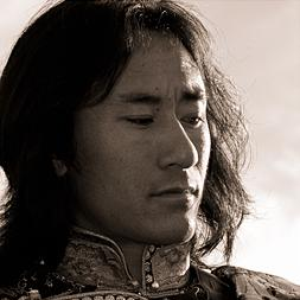
| Trackimage | Playbut | Trackname | Playbut | Trackname |
|---|---|---|---|---|
| 18547104 | Play | Poem of the Sixth Dalai Lama | 04:14 Tools | |
| 18547105 | Play | Manglih | 03:27 Tools | |
| 18547108 | Play | Pilgrimage | 04:19 Tools | |
| 18547106 | Play | Ga-ik Lihji | 04:35 Tools | |
| 18547110 | Play | Nehnijih Lirang | 04:52 Tools | |
| 18547107 | Play | Drashi | 03:06 Tools | |
| 18547109 | Play | Danlih | 03:24 Tools | |
| 18547112 | Play | The Tibetan Alphabet Song | 04:38 Tools | |
| 18547116 | Play | Nyanmulih | 03:29 Tools | |
| 18547114 | Play | Banchen Danlih | 04:14 Tools | |
| 18547115 | Play | Tsandan Hloma | 02:56 Tools | |
| 18547113 | Play | Tserjih Tsomo | 04:21 Tools | |
| 18547111 | Play | Counting Song | 05:27 Tools | |
| 56899507 | Play | Lopez Island (feat. Philip Graulty) | 05:27 Tools | |
| 18547121 | Play | Lihshek | 01:30 Tools | |
| 89555651 | Play | Gesar (Shandan Nungchuk) | 01:30 Tools |

-
- 11,483
- plays
-
- 3,342
- listners
-
- 11483
- top track count
Karsangjamtso (Karjam for short) Saeji was born in Gannan Tibetan Autonomous Prefecture, the third son and sixth child in a nomadic Tibetan family. His entire family still lives on the high grassland plateau where he was born, raising yak and sheep and visiting the local Buddhist monasteries. Fate, a good elementary school teacher and falling in with a certain group of cousins and friends led Karjam to stay in school, unlike his siblings. For middle school he had to leave his home and relocate to the county seat, Machu, where he stayed until the end of high school, by which time he’d been scouted by Gannan Tibetan Music and Dance Troupe, the most prestigious and perhaps earliest established of all the Tibetan “folk” performance groups. This troupe sent him to a school for performance where he studied for a year in a program so rigorous he said that the instructors seemed to relish making the dancers cry. This was also when he first began to learn Chinese, his second language after Amdo-Tibetan. He later took time off from his troupe to attend a two year program in Tibetan Language and Literature at Northwest Nationalities (Minorities) University in Lanzhou, China. Consequently he can read and write literary and modern Tibetan and is familiar with the classics of Tibetan literature. Living in the prefectural seat of Hezuo for fifteen years with the exception of his time in university Karjam attained a high degree of training in Tibetan traditional dance from many different regions and in many different forms, ranging from the slow Buddhist dances usually performed by the monks to huge Communist-style mass productions where the troupe would train hundreds of townspeople to create a massive display for festivals. He had perhaps the most experience with dance to occupy the eye while a singer or two belted out a song from center stage. As he grew older and more experienced the troupe realized his singing talent and he began to gain a reputation for his voice, now the members of his troupe began to dance around him as he stood with a microphone. Fate threw him an unexpected curve ball when he went to perform at a traditional mask dance festival in Korea and fell in love with an American woman. His troupe began to worry that he’d go on an overseas tour and become an illegal immigrant, preventing all of them from ever getting a “special purposes passport” ever again, and just as it had seemed he was to emerge as a front-liner he was confined to the domestic stage. Frustrated, Karjam looked outwards, singing in a Tibetan-themed nightclub in Beijing and even revisiting Korea after he secured a passport not restricted to special purposes. Today he’s living in America and he’s also been on a Buddhist Pilgrimage to India and Nepal, seeing all the major sites associated with Buddhism in the past and Tibetan Buddhism today. In America he’s tackling the uphill battle of becoming a music and dance professional without government funding and an entire troupe around him. Read more on Last.fm. User-contributed text is available under the Creative Commons By-SA License; additional terms may apply.